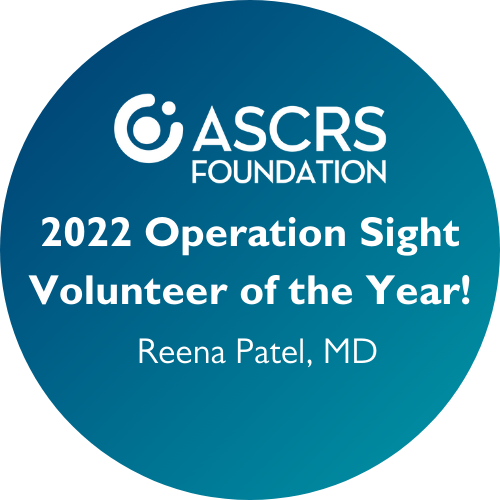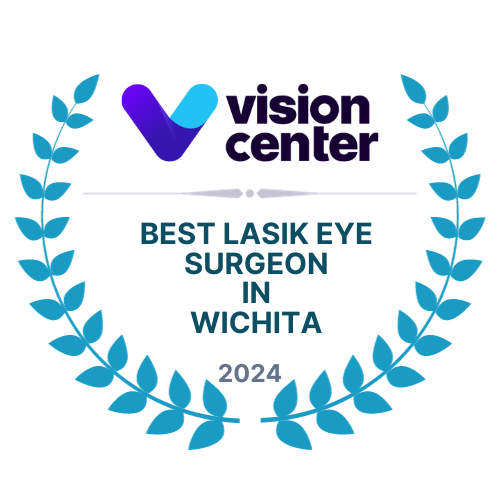LASIK (laser-assisted in situ keratomileuses), commonly known as laser eye surgery or laser vision correction, is a corrective refractive surgery that offers a long-term solution for people suffering from nearsightedness (myopia), farsightedness (hyperopia) and astigmatism. During laser eye surgery, an ophthalmologist reshapes the patient’s cornea using a laser or microkeratome to improve their visual acuity. After recovery, most people no longer feel the need to use eyeglasses or contact lenses. Dr. Patel of Wichita Vision Institute is one of the best ophthalmologists in Wichita, Kansas.
Who Is a Candidate for Laser Eye Surgery? 3 Things to Know
Although LASIK surgery has many benefits, not everyone is a suitable candidate. The surest way to tell whether you are an ideal candidate for the procedure is by scheduling a consultation with an ophthalmologist. However, you can gauge your suitability for LASIK by understanding the entire process and the associated benefits. Additionally, you can check the factors that affect the suitability of a candidate to learn what might rule you out.
Here’s what you need to know about this surgery as you investigate it for yourself:
1. The Process
The American National Standards Institute has standardized the planning and analysis of all techniques that involve reshaping of the cornea. During a typical laser eye surgical procedure, an ophthalmologist creates a thin flap on the eye, folds the flap to allow remodeling of the tissue beneath using a laser, and repositions the flap.
Prior to Surgery
Patients with soft contact lenses are required to stop wearing them 5 to 21 days before undergoing eye surgery. Those with hard contact lenses should stop wearing them for at least 6 weeks before the surgery. Patients who have had hard contact lenses for over 3 years might be required to wait an additional 6 weeks before the surgery. Since the cornea needs to be transparent to carry out its functions properly, it is avascular (lacks blood vessels). As such, the cornea’s cells absorb oxygen through the tear film.
However, some contact lenses, especially the low-oxygen-permeable ones, interfere with the absorption of oxygen leading to corneal neovascularization, or the formation of new blood vessels on the cornea. Besides prolonging the inflammation and recovery durations, corneal neovascularization also causes some pain after surgery because of increased bleeding. Therefore, patients considering laser eye surgery are advised to avoid frequent use of contact lenses.
Pre-Operative Examination and Education
According to regulations set by the Food and Drug Administration (FDA), LASIK candidates should be at least 18 years old. The patient’s prescription should also be stable for at least 1 year before surgery. Dr. Patel uses a pachymeter to examine the patient’s cornea to determine its thickness. He also measures the cornea’s surface contour using a corneal topography machine or a topographer. The examination and preparatory process also highlight astigmatism and other anomalies, such as an irregularly shaped cornea.
With this information, Dr. Patel can determine the location and amount of corneal tissue to remove during the surgery. Prior to the surgery, the doctor prescribes self-administered antibiotics to reduce the risk of developing an infection after the LASIK. The doctor might also give the patient a short-acting oral sedative as premedication. Finally, you will have anesthetic eye drops to make the procedure painless. Some conditions that can make you an unsuitable candidate for LASIK surgery include:
- Thin corneas
- Large pupils
- Extremely dry eyes
- Uncontrolled glaucoma or cataracts
Surgery Steps
The doctor holds the eye in place with a soft corneal suction ring. As suction increases, the eye experiences a transient dimmed vision. This immobilizes the eye, allowing the doctor to create a flap by cutting through the corneal epithelium and Bowman’s layer using a microkeratome or a femtosecond laser. Leaving a hinge at one end of the flap allows the doctor to fold it back gently, giving her access to the stroma.
Using an excimer laser, the doctor reshapes the corneal stroma. She removes layers of tissue without burning with heat or actual cutting. Using lasers in the deeper corneal stroma shortens the recovery time and is less painful compared to other techniques, such as photo-refractive keratectomy (PRK).
Once Dr. Patel has reshaped the cornea and ensured it has the proper curvature, she looks out for any air bubbles and debris before carefully repositioning the flap over the exposed tissue. Once the flap is in place, the eye heals naturally with time.
Postoperative Care
After laser eye surgery ct, patients receive a course of antibiotics and anti-inflammatory eye drops that last for several weeks. Patients are advised to rest and receive dark eyeglasses to protect them from bright lights. Some might receive protective goggles to help them avoid rubbing their eyes while asleep and also to prevent the eyes from drying up.
Patients are also instructed to moisturize their eyes using preservative-free tears. In some cases, the doctor might recommend a bandage contact lens to help with the healing. These are removed after 3 or 4 days.
2. Benefits of Laser Eye Surgery
Corrected Vision
The outright benefit of LASIK surgery is improved vision. Data collected from millions of people who have undergone LASIK surgery shows that around 95% of patients achieve uncorrected visual acuity (UCVA) of at least 20/40, while 85% of patients achieve 20/20 vision or better. More than 80% of patients say they are satisfied with their LASIK surgery results. After the surgery, most patients no longer need to wear eyeglasses or contact lenses.
No Pain
Some people assume laser eye surgeries are painful and scary. However, one reason why more than 30 million people have undergone LASIK surgery is that it causes little to no pain. As we have mentioned above, the doctor administers anesthetic eye drops to numb the eyes.
Besides having anesthetic qualities, these eye drops feel no different from over-the-counter or prescription eye drops. Once the patient blinks, the eye drops numb the eyes only without affecting the eyelids and the surrounding areas.
Immediate Results
Many patients experience improved eyesight the day after the LASIK surgery. Others abandon their eyeglasses or contact lenses right after the surgery. Even those who still use their eyeglasses or contact lenses often discover they only need them occasionally. Patients are also allowed to resume normal activities a day or two after the surgery. However, they are advised to avoid swimming and wearing eye makeup for the first 2 weeks.
Saves Money
Fashionable frames do not come cheap. Regular purchase of such frames, contact lenses, and contact lenses solutions can burn a sizeable hole in your pockets. Since a LASIK surgery corrects your vision, it reduces your need for eyeglasses and contact lenses, saving you a significant amount of money over the years.
For those who still use eyeglasses, the glasses last longer because they use them less frequently. You also do not need to make costly frequent visits to the optometrist after a LASIK procedure.
Improved Self-Confidence
Some people are self-conscious about their looks when in eyeglasses. Although contact lenses can help with this, many people are uncomfortable with contact lenses, and putting them on can be a tricky activity. After a LASIK surgery, you can participate in the activities you love without worrying about your frames getting in the way.
You can also play sports or pursue other career options that were out of reach because of your previous condition. Engaging in all these activities without worrying about your vision can boost your self-confidence immensely.
Allergy Relief
Seasonal allergies can be a big nuisance, especially for people who wear contact lenses. People who suffer from seasonal allergies get itchy eyes that become watery when they tear up. This can be very uncomfortable for those who use contact lenses to improve their vision. Additionally, contact lenses are known to trap in pollen, further aggravating the situation. A LASIK surgery helps you avoid such problems by offering a long-lasting alternative to contact lenses.
3. Factors That Affect Your Candidacy for Surgery
Despite the many benefits of this eye surgery, not everyone is a suitable candidate for LASIK. Here are some factors to consider:
Age
Patients under the age 18 are not suitable candidates for LASIK because their vision has not stabilized yet. This exposes them to the refractive error changes.
Stable Prescription
Before undergoing a LASIK surgery, patients must maintain a stable prescription for at least 1 year.
Healthy Eyes
Certain eye conditions, such as an active eye infection or injury, can rule you out for LASIK surgery.
General Health
A compromised immune system can prevent you from benefiting from LASIK surgery. Health conditions such as lupus, rheumatoid arthritis, and fibromyalgia make you an unsuitable candidate. Additionally, using some medications might expose you to complications. During your consultation, ensure you inform the doctor about any medications you take.
Pregnancy and Nursing
Pregnant women may experience visual fluctuations which make them unsuitable candidates for LASIK surgery. The ideal time to schedule a LASIK consultation is 6 weeks after giving birth or 6 weeks after you finish breastfeeding. Other patients are forced to wait 6 months or longer after giving birth to ensure their vision has stabilized before going for LASIK surgery.
Corneal Thickness
To maintain the strength and shape of the cornea, LASIK candidates must have a certain degree of corneal thickness. Fortunately, blade-free LASIK surgery offers hope to patients whose cornea was previously considered not thick enough. Furthermore, patients whose cornea is not thick enough for LASIK surgery might find relief in other laser options, such as PRK.
Discover if It’s Right for You
LASIK surgery is a long-term revolutionary solution for nearsightedness, farsightedness, and astigmatism. By improving your visual acuity, it frees you from wearing glasses and contact lenses. To know whether you are an ideal candidate for Wichita laser eye surgery, schedule a consultation with Dr. Patel of Wichita Vision Institute in Wichita, Kansas.







